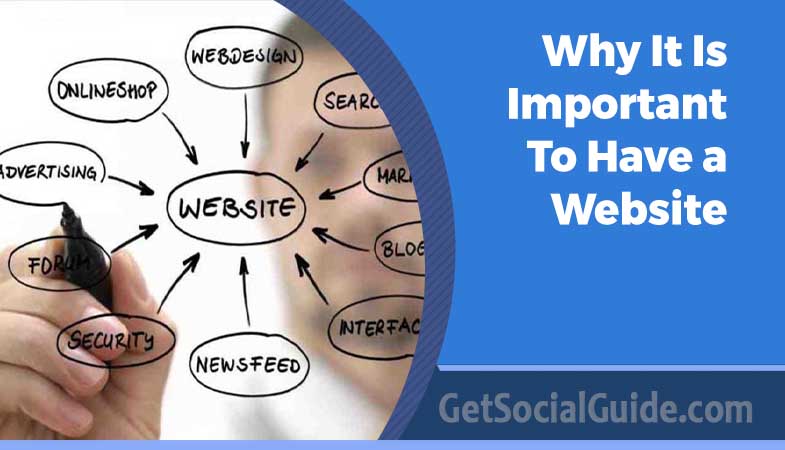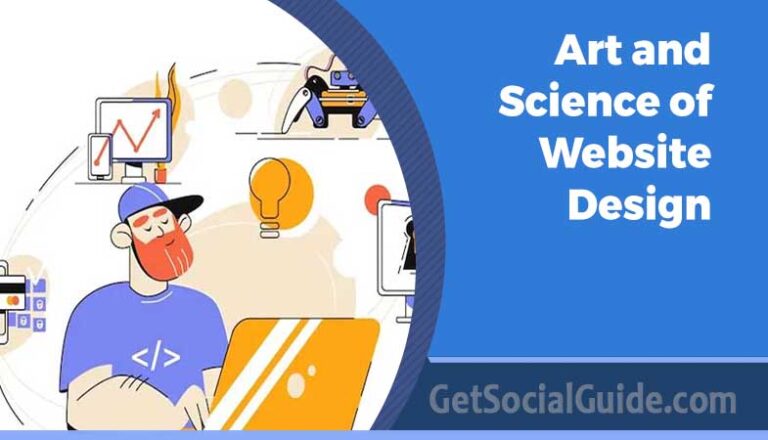Why It Is Important To Have a Website
There are over 1 billion websites in the world and there is a reason behind that. Whether you’re a business owner, freelancer, or simply someone with a message to share, having a website offers countless benefits. Here are some key reasons why a website is essential:
Business Credibility
A well-designed website can make your business look more credible. When potential customers search for your company online, a professional-looking website reassures them that your business is legitimate and trustworthy. On the other hand, not having a website or having a poorly designed one can make people doubt your business. For instance, imagine a new hair salon in town called “Stylish Cuts.” If someone hears about it and tries to look it up online but finds no website, they might decide to go to another salon instead. They could think, “If this salon doesn’t even have a website, how professional can they be?” On the other hand, if they find a sleek, informative website for Stylish Cuts, showing the services offered, stylists’ profiles, and customer reviews, they are much more likely to book an appointment. A website serves as a digital storefront, giving customers confidence in your brand and showing that you are serious about your business. Note: Social media profiles work for this purpose too, but the effect of having your own website is stronger.
2. Showcases Products and Services
A website provides a perfect platform to showcase your products or services in detail. Through high-quality images, videos, and comprehensive descriptions, you can give potential customers a clear understanding of what you offer. This is especially important for businesses with complex or high-value products that require more explanation than a simple social media post can provide. For example, Warby Parker’s website showcases its eyewear products with detailed descriptions, high-quality images, and interactive features like virtual try-ons. Customers can explore different styles, colors, and fit options, helping them make an informed purchase decision.  Women’s Eyeglasses page on Warby Parker Moreover, a website allows you to highlight customer testimonials, case studies, and reviews, further demonstrating the value and effectiveness of your offerings. This can help persuade potential customers to choose your products or services over those of competitors.
Women’s Eyeglasses page on Warby Parker Moreover, a website allows you to highlight customer testimonials, case studies, and reviews, further demonstrating the value and effectiveness of your offerings. This can help persuade potential customers to choose your products or services over those of competitors.
3. Provides 24/7 Customer Access
One of the biggest advantages of having a website is that it offers your customers access to your business 24/7. Unlike a physical store with fixed hours, a website is always available, allowing customers to learn about your products or services at their convenience. This can be particularly beneficial for global customers in different time zones. Additionally, integrating an all in one CRM with your website can further enhance this accessibility by providing your team with real-time customer data and communication tools. A website can include different features to assist customers anytime:
FAQs:
A comprehensive FAQ section can answer common questions, saving time for both customers and your support team. For example, a tech company’s website could include FAQs about troubleshooting common issues, software installation, and account management.
Chatbots
Implementing chatbots can provide instant responses to customer inquiries, guiding them through their questions and issues even outside business hours. There are lots of AI tools that can help you with creating and managing these chatbots.
Customer Support Contact Information
Clearly displaying contact information lets customers know how to reach out for further assistance when needed. This might include email addresses, phone numbers, or a contact form on your website.
4. Improves Brand Visibility
With billions of people using the internet every day, having an online presence makes it easier for potential customers to find you. Here are some key ways a website can improve your brand’s visibility:
- Search Engine Optimization (SEO): Optimizing your website for search engines increases your chances of appearing in search results when people look for products or services related to your business.
- Global Reach: A website allows you to expand your reach beyond local boundaries. Through targeted online marketing strategies, you can attract customers from different parts of the world, thereby growing your business and increasing brand awareness.
- Content Marketing: Regularly updating your website with blog posts, articles, and other content can attract visitors and keep them engaged. High-quality content can also be shared by users, further increasing your visibility.
- Online Advertising: Using online advertising options such as Google Ads or social media ads can drive targeted traffic to your website.

- Social Media Integration: Linking your website to your social media profiles can drive traffic between the two, enhancing your online presence and making it easier for customers to engage with your brand.
5. Enables Online Sales and Transactions
A website can serve as an online store, enabling you to sell products and services directly to customers without the need for a physical location. This not only broadens your customer base but also provides a convenient shopping experience for customers who prefer online shopping. For example, Zappos’ website allows customers to browse a vast selection of shoes and apparel, read detailed product descriptions, view high-quality images, and make purchases easily. Zappos also offers features like free shipping, easy returns, and order tracking, making the entire shopping and transaction process seamless and user-friendly. E-commerce features on your website allow customers to browse products, make purchases, and track orders from the comfort of their homes. This convenience can lead to increased sales and customer loyalty. Additionally, online sales can be complemented with features like special offers, discounts, and personalized recommendations, enhancing the overall shopping experience.
6. Centralizes and Integrates Marketing Efforts
A website acts as the main hub for all your marketing activities. It lets you bring together various strategies like content marketing, social media, email marketing, and pay-per-click ads. Sending traffic from these sources to your website, can help you offer a unified brand experience and lead visitors through your sales process. For instance, you can share blog posts on social media to drive traffic back to your site, where visitors can find more detailed information and engage with your brand. Similarly, you can use email campaigns to direct subscribers to special promotions or new content on your website. A website also helps you track your marketing campaigns’ success. Using tools like Google Analytics, you can see how many people visit your site, what they do there, and how many of them convert. For example, you can monitor which blog posts attract the most readers or which product pages lead to the most sales. This information helps you fine-tune your marketing plans and get a better return on investment.
Final Thoughts
Just having a website isn’t enough to achieve success. In the fast-paced online world, you also need to keep it updated to follow new trends and technologies. Keeping your website current and easy to use helps attract customers and keep your business ahead in the market. Regular updates and improvements are key to maintaining a strong online presence.



